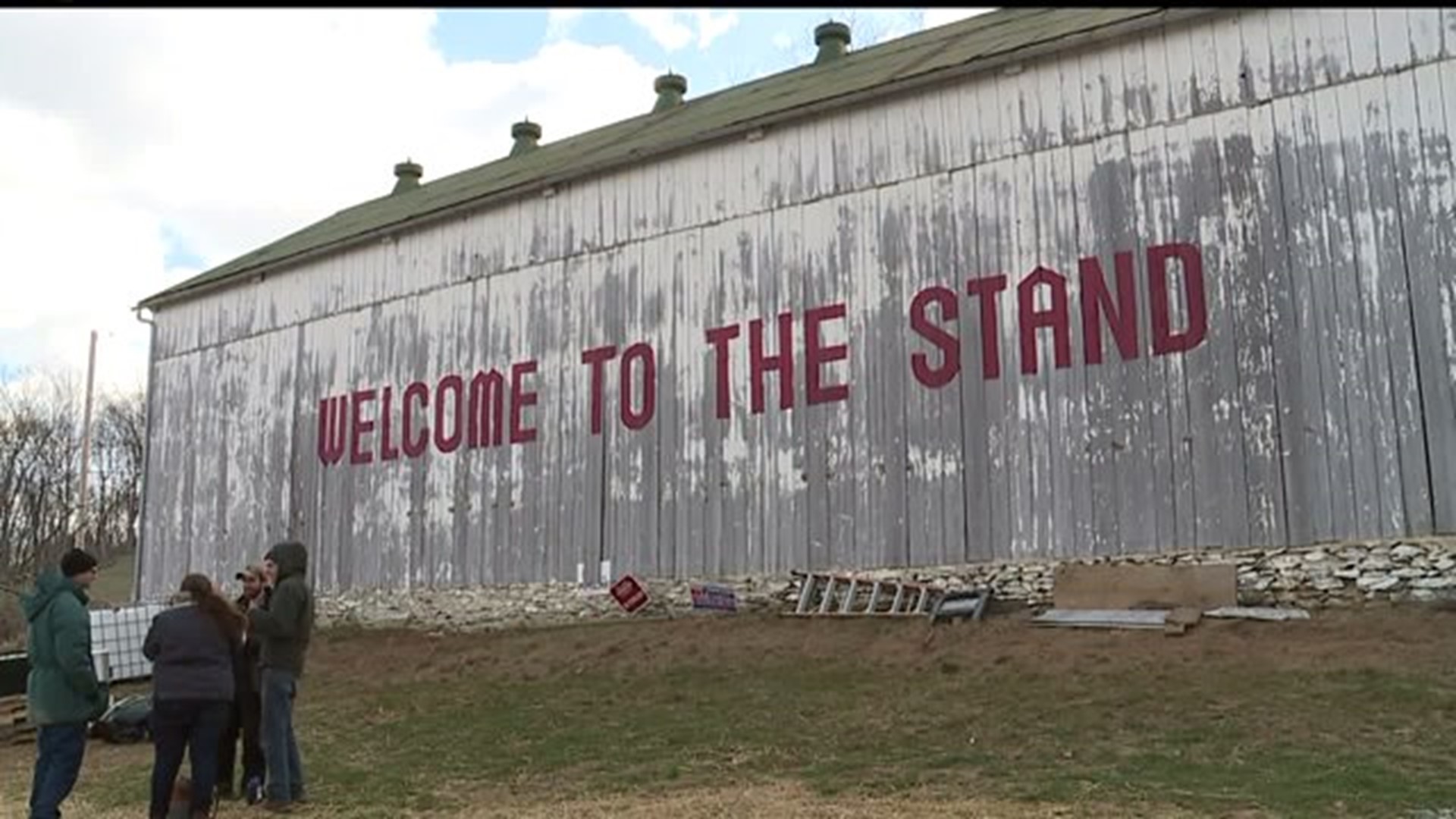CONESTOGA TOWNSHIP, Pa. -- Opponents to the construction of the Atlantic Sunrise Pipeline through parts of Lebanon and Lancaster counties are camping out, in an effort to block construction. It's the latest move in a nearly three-year fight over the proposed pipeline project.
In February, the Federal Energy Regulatory Commission authorized the expansion of the pipeline, which will carry Marcellus Shale gas from Pennsylvania to other states in the Mid-atlantic and Southeastern U.S. Opponents say the construction of the pipeline will damage Native American burial sites, and ancient archaeological sites, tied to the Susquehannock tribe.
The Oklahoma-based company behind the project, Williams Partners, says it has conducted nearly 45,000 shovel tests to develop a construction path that won't disturb sensitive areas. Still, demonstrators have set up a camp site in Conestoga Township, in the path of the planned construction.
"We will stand in front of bulldozers if necessary. We will get arrested if that what it calls for," said Gene Thunderwolf Whisler. "We won't take violent measures, but we will do what we can all the way up to that point."
Williams Partners insists it's gone through all of the proper avenues to secure the permits needed to build the Atlantic Sunrise Pipeline. You can read the company's full statement, regarding the projected path of the pipeline, below:
"We do not intend to destroy cultural resources or human burials of any age or origin. Throughout the regulatory process for Atlantic Sunrise, Williams has gone above and beyond federal standards when finalizing a route and implementing mitigation measures to minimize impacts in and around sensitive areas. We coordinated with 21 federally recognized tribes and other non-federally-recognized tribes or stakeholders in or near the project to determine locations of cultural significance, including the location of cemeteries and burial grounds. We also worked closely with the Pennsylvania Historic Museum Commission to conduct extensive fieldwork and data recording, especially in the Conestoga area, to ensure that no prehistoric archaeological deposits, eligible to the National Register of Historic Places, exist within the project construction footprint. In fact, we excavated approximately 45,000 shovel tests following state guidelines and developed a construction plan to avoid impacts and ensure potentially sensitive areas are not disturbed. We also made numerous changes to the proposed route, as well as modifications to the project design and construction methodologies, to ensure significant cultural resources are protected.”

